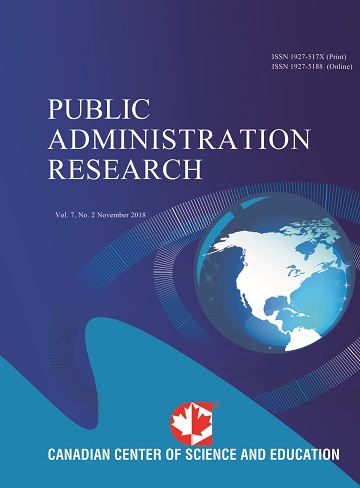Governing Smart Cities Through Cultural-Tech Synergy: A Policy Analysis of Beijing’s Triple Helix Framework
- Mingming Du
Abstract
This study investigates Beijing’s decade-long transformation into a global sci-tech innovation and cultural hub, driven by a triple helix model involving government policy support, market leadership from digital cultural enterprises, and intellectual expertise from universities. Beijing, as China’s capital, possesses unparalleled comparative advantages, underpinned by its rich historical and cultural heritage coupled with a world-leading artificial intelligence industry. These dual endowments provide a unique foundation for the city’s digital cultural industry development. Beijing demonstrated the power of its technology and culture in enabling innovation on the global stage during the 2022 Winter Olympics. The triple helix model of government, industry, and academia underpinned the success of the Beijing Winter Olympics, further demonstrating its role as a solid foundation for Beijing’s development as a globally recognized innovation hub. Findings suggest that China’s governance architecture ensures policy coherence to orchestrate market emergence, while cultural-tech convergence attracts investment. Challenges persist in real-time policy-market coevolution and academic curriculum updates. Beijing’s experience, as a microcosm of Chinese modernization, thus offers critical urban development insights. In China’s distinctive political context, the government plays a pivotal role within this triple helix model, leveraging institutional capacities to steer innovation ecosystems. The triple helix model emerges as a synthesis of the Keynesian-Hayekian dialectic on economic governance. Nevertheless, dynamically calibrating state-market equilibrium remains the central policy tension.
- Full Text:
 PDF
PDF
- DOI:10.5539/par.v15n1p58
Journal Metrics
h-index (2017): 7
i10-index (2017): 6
h5-index (2017): 7
h5-median (2017): 13
Index
- COPAC
- CrossRef
- DTU Library
- EBSCOhost
- EuroPub Database
- Excellence in Research for Australia (ERA)
- Genamics JournalSeek
- Ghent University Library
- Google Scholar
- Harvard Library
- Infotrieve
- Jisc Library Hub Discover
- LOCKSS
- Mir@bel
- Norwegian Centre for Research Data (NSD)
- Open J-Gate
- PKP Open Archives Harvester
- Publons
- ROAD
- Scilit
- SHERPA/RoMEO
- Stanford Libraries
- Ulrich's
- UniCat
- Universe Digital Library
- UoS Library
- WorldCat
Contact
- Gabriel TaiEditorial Assistant
- par@ccsenet.org
